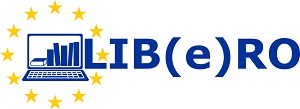Project Resources
This part of the website will give you access to project resources we publish, such as reports and other project outcomes.
During the first phase of our project, we conducted two types of national analysis for each partner country: a national situation analysis and a needs analysis. While the situation analysis describes the state of existing offers for refugees by libraries and regarding e-learning, for the needs analysis we interviewed refugees, librarians and social workers and asked them about their needs and wishes for libraries as learning spaces and an e-learning platform supporting this.
As a result, we found some encouraging facts about the current situation, generated important input for our e-learning platform and discovered similarities but also differences between the partner countries.
Find out more by reading our reports!
The analysis reports form the basis upon which Prof. Monika Kil and Dr Filiz Keser Aschenberger created the pedagogical concept of project LIB(e)RO. The results of the analysis reports are thus used to derive the pedagogical principles underlying the e-learning platform, its structure and contents.
In this document you will find a compilation of important links and further teaching and learning materials (in English available only).
Our handbook provides information for librarians and social workers. The contents we offer should help you to establish your libraries as socially inclusive learning spaces.
The Project News, which we publish on a semi-annual basis, offer you information on the current status of our project as well as on where we are headed.
If you are interested in receiving our Project News via e-mail, please write to Marielle Ratter or directly register yourself following this link to our newsletter registration page.
For an overview of all relevant information concerning our project, please also take a look at our brochure.
Another summary of the most important information regarding our project is provided by our project presentation (as of December, 2017).



